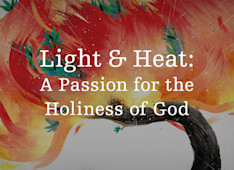Why Christology Matters: A Dialogue Between Anselmus Modernus and Boso Brown

(With apologies to Anselm, Archbishop of Canterbury, 1093-1109)
Boso Brown: So, Christology. Big word, but it doesn't really make any difference to me. Why should it?
Anselmus Modernus: I am glad you asked. May I ask you a couple of questions in return?
BB: Sure.
AM: You sell computer technology, don't you? Does it matter if you describe your products properly?
BB: Well of course it does!
AM: Here's another question. You are married with two daughters, right? Does it matter to you if I describe your wife and daughters inaccurately, and tell you that it doesn't make any difference to my relationship with them?
BB: Of course it matters! They're the most important people in the world to me. I love them. Don't even think about doing that.
AM: It's ok, I wasn't. But you get my point? I watched you during the hymn after last Sunday's sermon on Peter's words about Christ "Though you have not seen him, you love him" (1 Peter 1:8). You looked as if you really meant the words: "My Jesus I love Thee . . . If ever I loved thee my Jesus 'tis now." If we love Him isn't it important how we describe Him? That's what Christology is all about.
BB: Well, if you put it that way . . ..
AM: Christology—understanding and describing the Savior biblically—is a matter of love as well as faith. That is why the early Christian Fathers wanted to describe Him in a way that was faithful to Scripture. Ignatius of Antioch put it movingly when he wrote: "My Love is crucified."
You see, it was love that drove the best theologians like Athanasius and, later on, John Calvin to ask: "How can we best describe the Savior we love?"
BB: So what did they emphasise?
AM: It would take a library to answer that question. But here's one important principle they grasped. If, as Paul says, "Christ Jesus came into the world to save sinners" (1 Timothy 1:15 ), then His ability to save provides us with a litmus test to check what we say about Him.
BB: How's that?
AM: Well, if you describe Christ in a way that is inconsistent with His being qualified to be our Savior, your description must be flawed!
BB: I'm not following you.
AM: Look at this way. What happens if you accept the kind of things that people sometimes think or say about Jesus, like:
"God's Son emptied Himself of His deity in order to become a man; then He took up His deity again when He went back to heaven. Isn't that what Philippians 2:5-11 means?"
If He stopped being God for a while, He was only a man. So, apart from other considerations, He wouldn't have had any authority to forgive sins!
"He was sinless, but He didn't have a human nature exactly like ours. He was God, so He couldn't be really tempted the way we are. And anyway, as God it was much easier for Him to go through the crucifixion."
But if He didn't really become one of us, how could He act on our behalf before God?
BB: Well, that's fairly obvious. That's why I use an illustration to teach my girls how Jesus can save us because He is the God-Man. I tell them He is like a bottle of medicine! The label says "Shake the Bottle" to mix the ingredients together properly. In a similar way, Jesus is the perfect mixture of God and man. That's how He did miracles, isn't it?
AM: Sorry, BB. Actually that's "heresy." Did Moses and Elijah and Simon Peter do miracles by mixing some deity with their humanity?
BB: You mean that's not a good illustration?
AM: That's an understatement. If the humanity and deity of Jesus were mixed up together, then He wouldn't be truly or fully human any longer, would He? He would be something different—Superman. But if He's not really one of us He is not qualified to save us! Remember how Hebrews says He needed to share our nature in order to suffer, die our death, and be our High Priest and Helper (Hebrews 2:10-18; 4:15).
BB: Oh, now I'm beginning to see. The mystery of the incarnation is that the two natures are united not by being mixed together but because one Person possesses them both? That is how the Lord could do (and can still do) what was appropriate to each nature in order to save us?
AM: Yes, remember how The Westminster Confession puts it? "Two whole, perfect, and distinct natures, the Godhead and the manhood, were inseparably joined together in one person, without conversion, composition, or confusion" (VIII.ii).
BB: Well, if you'd only quoted the Confession at the beginning. I get it. Christology is important. . . . By the way, has R.C. Sproul written anything on Christology?
AM: You sell computers, not me. Search Ligonier's website yourself.
Anselm (1033-1109) was the author of the great medieval Christological work Cur Deus Homo, which is in the form of a dialogue between himself and his friend and fellow monk named Boso.
More from this teacher
Sinclair Ferguson
Dr. Sinclair B. Ferguson is a Ligonier Ministries teaching fellow, vice-chairman of Ligonier Ministries, and Chancellor’s Professor of Systematic Theology at Reformed Theological Seminary. He is featured teacher for several Ligonier teaching series, including Sojourners and Exiles. He is author of many books, including The Whole Christ, Maturity, and Devoted to God's Church. Dr. Ferguson is host of the podcast Things Unseen.







